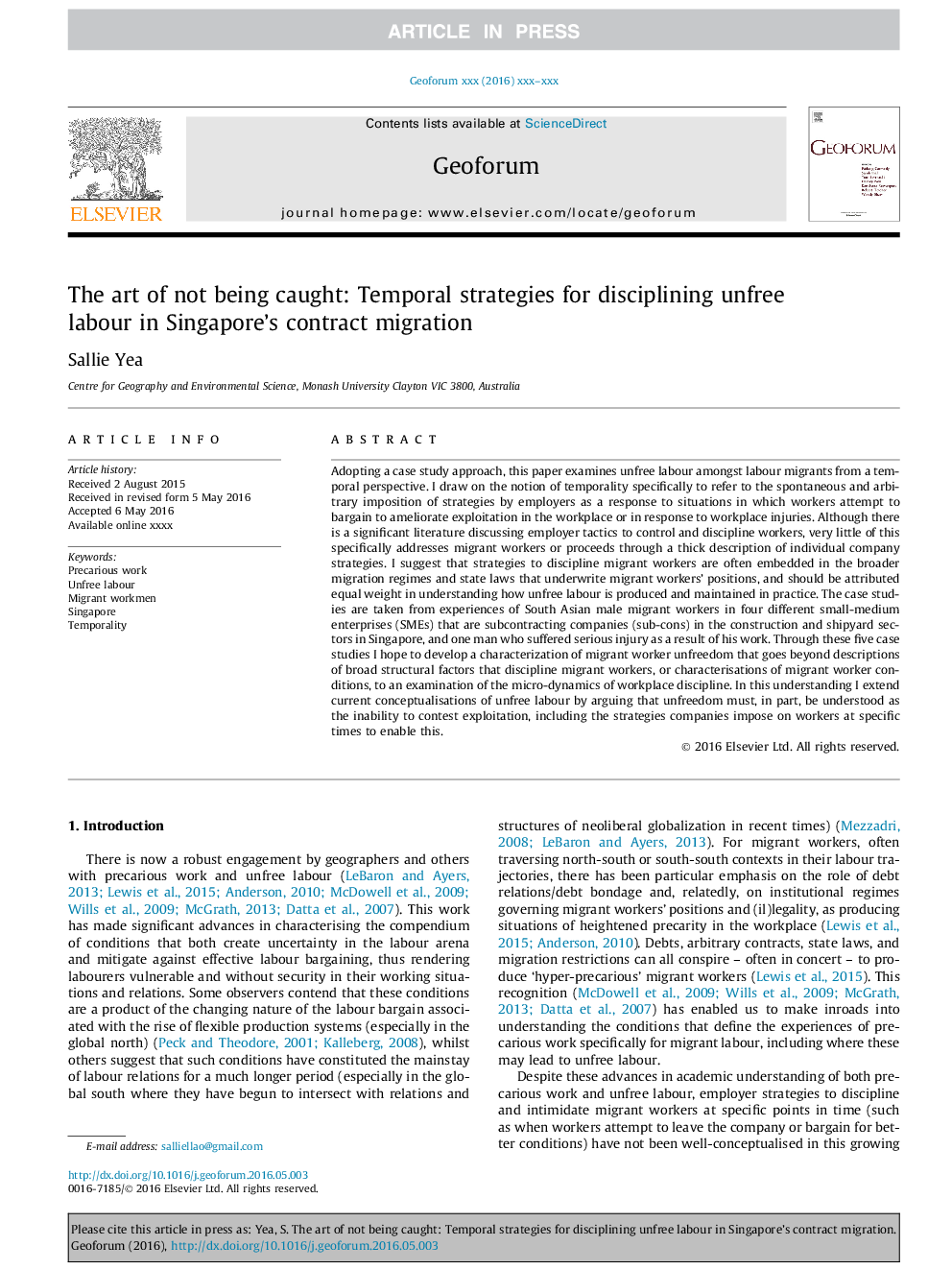ترجمه فارسی عنوان مقاله
هنر نداشتن: استراتژی های زمانی برای رعایت انظباط بدون کار در سنگاپور مهاجرت قرارداد
عنوان انگلیسی
The art of not being caught: Temporal strategies for disciplining unfree labour in Singaporeâs contract migration
| کد مقاله | سال انتشار | تعداد صفحات مقاله انگلیسی |
|---|---|---|
| 88240 | 2017 | 10 صفحه PDF |
منبع

Publisher : Elsevier - Science Direct (الزویر - ساینس دایرکت)
Journal : Geoforum, Volume 78, January 2017, Pages 179-188
ترجمه کلمات کلیدی
کار دشوار، کار بی قید و شرط، کارگران مهاجر، سنگاپور، زمان موقت،
کلمات کلیدی انگلیسی
Precarious work; Unfree labour; Migrant workmen; Singapore; Temporality;

